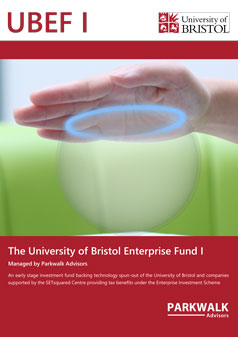Dear ,
ROADMap is an IP development company founded at CAPE (the Centre for Advanced Photonics and Electronics) at the University of Cambridge. This funding round will enable the company to execute a development program for universal, flexible, WSS (Wavelength Selective Switches).
The company possess capital efficient and scalable technology packages of IPR and knowhow, with an innovative technology supporting high value ecosystems.
The competition for disruptive technology will drive high-value exits, and this funding round is planned to take the company through to a possible trade sale.
Network operators are facing the triple challenge of increasing capacity to fulfil exploding internet data needs, managing unrelenting downward pressure on Opex and Capex costs, and supporting variable and fast evolving service features and demand patterns that put a premium on Network configuration flexibility. This leads to a requirement for very flexible optical switching that can operate at the wavelength level. Conventional switch architectures no longer meet this need as they cannot accommodate next generation 400 Gbps data rates.
The telecommunication industry is also migrating towards ‘flexgrid’ architectures where the capacity of each channel is moderated to satisfy fluctuating demands. Spare capacity freed up by this can accommodate additional or re-routed traffic flexibly and dynamically by matching channel bandwidths to each signal’s required data rate. This advance relies heavily on software based approaches and these have the added benefit of future proofing networks as the software defined network (SDN) can be remotely modified to accommodate changing demand and new service types, protocols or standards. This is all accomplished without hardware network upgrades or physical interventions, thus reducing costs. The market is expanding with new customers (such as Google and Amazon) joining the existing set of Telco’s and carriers.
Flex-grid networking places severe demands on the underlying hardware, especially optical switches within the network known as a Reconfigurable Optical Add/Drop Multiplexers (“ROADMs”) which must be competitive and have good manufacturability whilst being able to accommodate the flexibility and programmable functionality required. Within ROADM the Wavelength Selective Switches (WSS) is the key component. The ROADM market has grown from zero to $5bn since 2002 and is predicted to grow to around $11bn by 2020 . The market has already chosen RoadMap’s core technology, namely Liquid crystal on silicon (“LCoS”) as the way in which WSS’s will be made as it has several major advantages. It allows nearly all parameters to be programmable and upgraded by software-remotely and cheaply. Roadmap has designed a universal, flexible, software programmable WSS which will enable the next generation of switches needed by the network operators.
Progress since the last funding round
Over the last 12 months the company has worked hard to achieve the following:
- The establishment of a world-class team, including the appointment of Karl Heeks as CEO
- WSS proof-of-concept successfully built using novel square holograms
- Infrastructure in-place for next phase, including access to CASE and new offices at St John’s Innovation Centre
- Valuable IPR portfolio created and growing
- Relationships established with potential acquirers
Management / Team
Karl Heeks, CEO, joined in July 2015. He was formerly CEO of UltraSoC Technologies, an independent VC-backed provider of system-on-chip infrastructure to enable rapid development of embedded systems based on advanced SoC devices. He has a strong background in technology commercialisation and project management and has founded and grown several successful technology companies.
Ian Vance MBE, Chairman, is the former VP and Chief Engineer for Nortel Networks in Europe and previously Managing Director of the World-famous STL Laboratories in Harlow UK where fibre optics was invented. Over recent years Ian has been consulting in telecommunications, electronics and management communications.
Professor Daping Chu CTO (part-time), is head of the Photonics & Sensors Group and the Chairman of the CAPE Steering Committee. Prof. Chu has led the research of the recent development of LCoS WSSs. In addition to a highly successful academic research career he spent some years in industry with Epson. CAPE has multiple engagements with leading WSS market companies.
Dr Brian Robertson VP Engineering, is an optical physicist with nearly twenty years academic, consulting, and industrial experience in applied photonics technology. Brian has worked on LCoS at Cambridge University since 2002 and has contributed to five LCoS WSS Patent applications whilst employed at CUED.
Investment Case
The company has delivered on its original plan set out at the time of the Seed round. It has invested in the team and broader infrastructure, so that it is now in good shape to exploit its market position. An early trade sale is a possibility, if commercial and technology milestones continue to be met.





